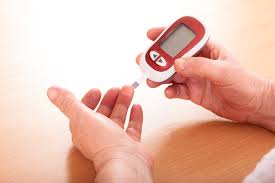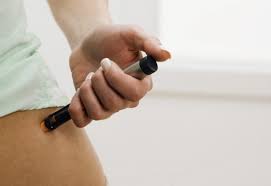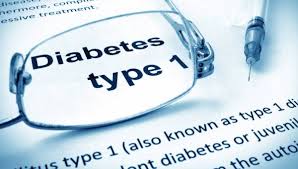Living with Type 1 Diabetes
Oct 09
Type 1 diabetes affects not just children, but also adults and will appears suddenly, requiring the person to inject insulin for the rest of his/her life. It is a type of autoimmune disease caused by the pancreas’s inability to produce insulin because the cells that produce the hormone are destroyed.
Insulin is responsible for the use and storage of glucose or sugar from the carbohydrates in your food. Diabetes cannot be cured and it is not caused by your diet or lifestyle, but it is life-changing, that is why there is a need for medication and lifestyle overhaul.

Insulin Injections
The body can no longer produce insulin in type 1 diabetes, that is why those who are affected must be dependent on insulin injections or insulin pump for the rest of their lives. It is also equally important to monitor the blood glucose levels everyday. Your doctors and the members of your family will have to work as a team to help you so you can still love a long, productive life.
Diet Plans
Even if type 1 diabetes is not caused by an unhealthy lifestyle (like eating food rich in carbohydrates), those affected by this condition will have to change their diet drastically to avoid complications (especially in the kidneys), blindness, and amputation. Ideally, your blood glucose level should be from 4 to 6 mmol/L, but other patients might be required to maintain a higher blood glucose level as per doctor’s instructions.

There is not one diet plan for all diabetes patients, so you will need to consult a dietician to come up with a diet that is right for you. As a rule, however, both children and adults have to limit intake of food with added salt, saturated fat, added sugars, and alcohol. You will be encouraged to eat vegetables in different colors, beans or legumes, fruits, grain or cereal food, lean meat and poultry, fish, eggs, tofu, and seeds.
Proper Exercise
Along with a healthy diet, exercise can help balance the insulin in your body, depending on the duration and the intensity of the activity. However, you always must remember that strenuous activities can also greatly lower your blood glucose level, something you must avoid as much as having a high blood glucose level. If your blood glucose is too low (hypoglycemia), you also must treat it. The key is to monitor what each physical activity does to your glucose level.

Prevent Complications
Type 1 diabetes exposes you to risks such as heart attacks, strokes, blindness, kidney failure, depression and/or anxiety, and amputations. You will have to learn the methods for proper foot care, eye health, bladder and kidneys health, and blood pressure. Check your feet for swelling, ulcers, blisters, bruising, and ingrown nails and get treated within seven days if there are abnormalities. Your eyes should be checked regularly and seek treatment if there are changes in your vision. Monitor your blood pressure and your urine for any changes as well.

